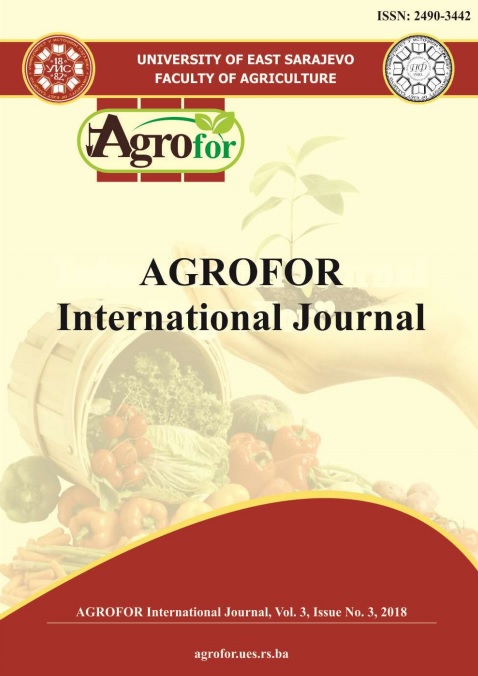INVESTIGATING THE EFFECT OF SUBSTRATE, MYCORRHIZAL APPLICATION AND BULB SEPARATION ON THE GROWTH OF THE WILD ORCHID ANACAMPTIS PYRAMIDALIS
DOI:
https://doi.org/10.7251/AGRENG1803005KAbstract
Pyramidal orchid (Anacamptis pyramidalis) is a wild terrestrial orchid widely
found in Lebanon and the Mediterranean zone. Random collection and trade of the
orchid for medicinal and edible use (salep) subjected it to a risk of extinction.
Consequently, the current work aimed to propagate this orchid in vivo. Orchid
bulbs were transplanted from the wild into four different soil substrates (Pinebark,
Pinebark-Peat (1/1), Peat-Sand (1/1) and control: soil from the collection site)
under controlled conditions of temperature and humidity. The effect of mycorrhizal
application (MY: Yes) was tested in the different substrates except in control and
orchid bulbs (son bulb and mother bulb) were planted combined (SB+MB) or after
separation of the mother bulb (SB). Same treatments were repeated over two
consecutive years. Results showed an earlier emergence of son bulbs (SB) grown
in control substrate. Moreover, there was a significant difference in plant growth
with superiority for (SB) compared to (SB+MB) regarding plant length and
elongation of first leaf except bulb dimensions (length and width) that were higher
in (SB+MB). Mycorrhizal application enhanced the overall growth of plants and its
effect was the most obvious in the substrate Peat-Sand (1/1). In general, the best
growth of the orchid was observed at the level (SB)/(MY:Yes)/Peat-Sand (1/1).
Results of the second experimental year confirmed those of the first year with an
improvement of the rate of emergence by 13%. The in vivo propagation method
was beneficial on improving the growth of A. pyramidalis ex situ and it could be
adopted as an initiative for wild orchid conservation.

